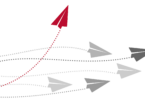Athens, Ga. – The University of Georgia’s Center for International Trade and Security (CITS) will hold a landmark workshop to train industry executives from India and China on controlling trade in technologies and materials used for producing weapons of mass destruction (WMD). The workshop will be held in Tokyo on March 16-17, 2006.
The workshop will bring together two dozen industry representatives from India, China and Japan in an effort to promote compliance with export regulations governing trade in dual-use goods and technologies—items that have peaceful uses but can be used as components in a WMD program. The workshop seeks to assist companies in China and India to adopt internal regulations that reduce the likelihood that dual-use goods will be diverted to countries such as Iran or North Korea that might use them for acquiring weapons of mass destruction. Companies are being encouraged to look for signs that foreign buyers might use purchased technologies for unauthorized military purposes.
“Controlling the spread of weapons of mass destruction requires the cooperation of entities in China and India as these two nations both possess nuclear weapons and trade in technology that have WMD applications. The export control systems in China and India have been improving. However, generating industry awareness and compliance with these regulations becomes the next big challenge for these countries and the international community,” said CITS Executive Director Michael Beck.
“The number of dual-use exporters in India and China will continue to rise steeply. These exporters must do more self-policing and emerge as the first line of defense in controlling proliferation,” added Anupam Srivastava of CITS.
This workshop is part of CITS’ plan to focus on improving corporate compliance over the next several years as part of its export control program.
CITS is associated with the University of Georgia’s School of Public and International Affairs. The Center is devoted to research, teaching, and outreach on issues related to international trade and security. CITS is highly regarded for its research on nonproliferation export controls—the laws, regulations, and enforcement arrangements that keep the components of nuclear, biological, or chemical weapons from falling into the hands of terrorists and countries of concern. CITS’ activities bolster export controls in countries where these components are manufactured, transshipped, and imported.
The workshop in Tokyo is being conducted in partnership with the Japan-based Center for Information on Security Trade Control and is supported by a grant from the Japan Foundation Center for Global Partnership.
##







